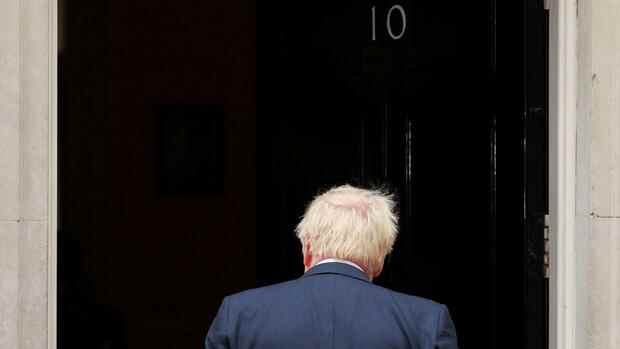It doesn’t work without drama. Boris Johnson even staged his departure as British Prime Minister with drums and trumpets. He was still fighting for office when the rest of the country had had enough of the character actor, who was often criticized as a political clown.
In the end, however, the 58-year-old had to accept his fate and resign.
Many Britons will breathe a sigh of relief now. Gone are the days when you had to doubt whether your own prime minister was telling the people the truth or was once again fooling them. That’s what Johnson did with Brexit, which he first pushed through with false numbers and then sold as a big win for his country. In fact, Britain is today worse off economically than the UK would be in the EU.
Even when it came to the notorious parties at the government seat during the corona lockdown, Johnson wasn’t too specific with the truth. The fact that he then promoted and then covered for a fellow party member known for sexual assault was a lie too much. That’s how Johnson stumbled upon himself and his character flaws.
Top jobs of the day
Find the best jobs now and
be notified by email.
What was fatal for Great Britain, however, was that the prime minister had no plan to lead the country out of the worst economic crisis in half a century.
His plan, known under the label “Levelling up”, to equalize the living conditions between the industrial, poorer north and the conservative, richer south, got stuck halfway.
Johnson: “I’m sad to be leaving the best job in the world”
In the end, Johnson couldn’t decide whether to defend the “red wall” of his newly won voters in the north or the “blue wall” of the conservative core voters in the south.
Johnson’s basically meritorious initiative to bring the country together economically fails, above all, because the cost of living is getting out of hand everywhere and the government doesn’t even know who to help first.
Chronic productivity weakness
If the British economy is once again presented as the “sick man of Europe”, then many are pointing to high inflation of more than nine percent and the fact that economic growth has come to a standstill.
The core of the British misery, however, is the low productivity growth of the economy of currently around 0.2 percent; a problem that many governments have already struggled to solve.
According to the renowned National Institute of Economic and Social Research (NIESR), productivity growth in Great Britain has lagged behind other leading industrial nations since the end of the Second World War. The institute attributes the weakness to deep-seated structural problems.
Read more on the UK government crisis:
In other words: Great Britain has not yet managed to educate its citizens and organize its economy in such a way that the British can not only succeed in the financial world of the City of London, but also play in the Champions League in manufacturing.
Johnson had no answer to this dilemma, but wanted to get the economy out of the economic slump with tax cuts. His successor has to come up with more.
Great Britain has some of the best universities in the world, London is the Mecca for start-ups in Europe, and the tech scene is booming. The conditions for a new economic start are therefore favourable.
However, this can only succeed if the next British Prime Minister also observes the first commandment for every government: “Do no harm!” In concrete terms, this also means limiting the negative consequences of Brexit as far as possible. A quick agreement with the EU in the dispute over the trade border in Northern Ireland would be a good start.
The country deserves to be governed competently and seriously. Johnson was unable to do this.
More: Tony Blair wants to get politically involved again
